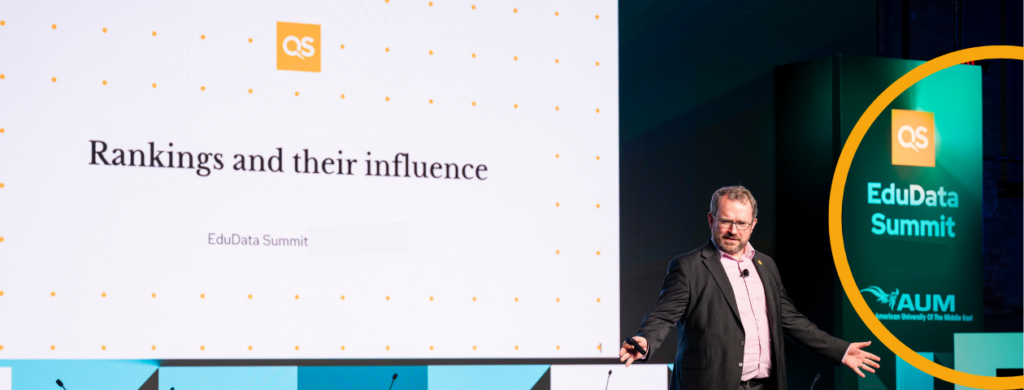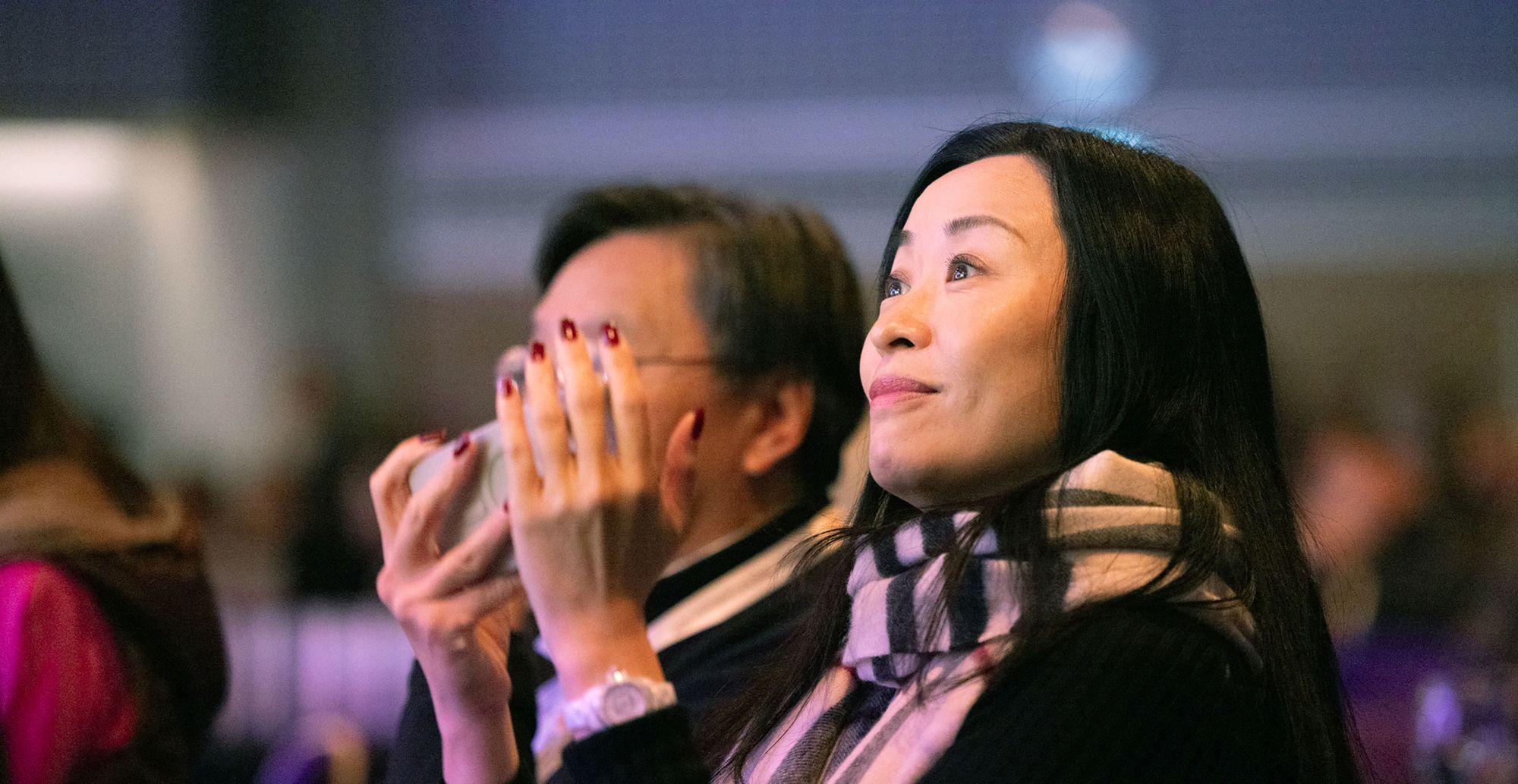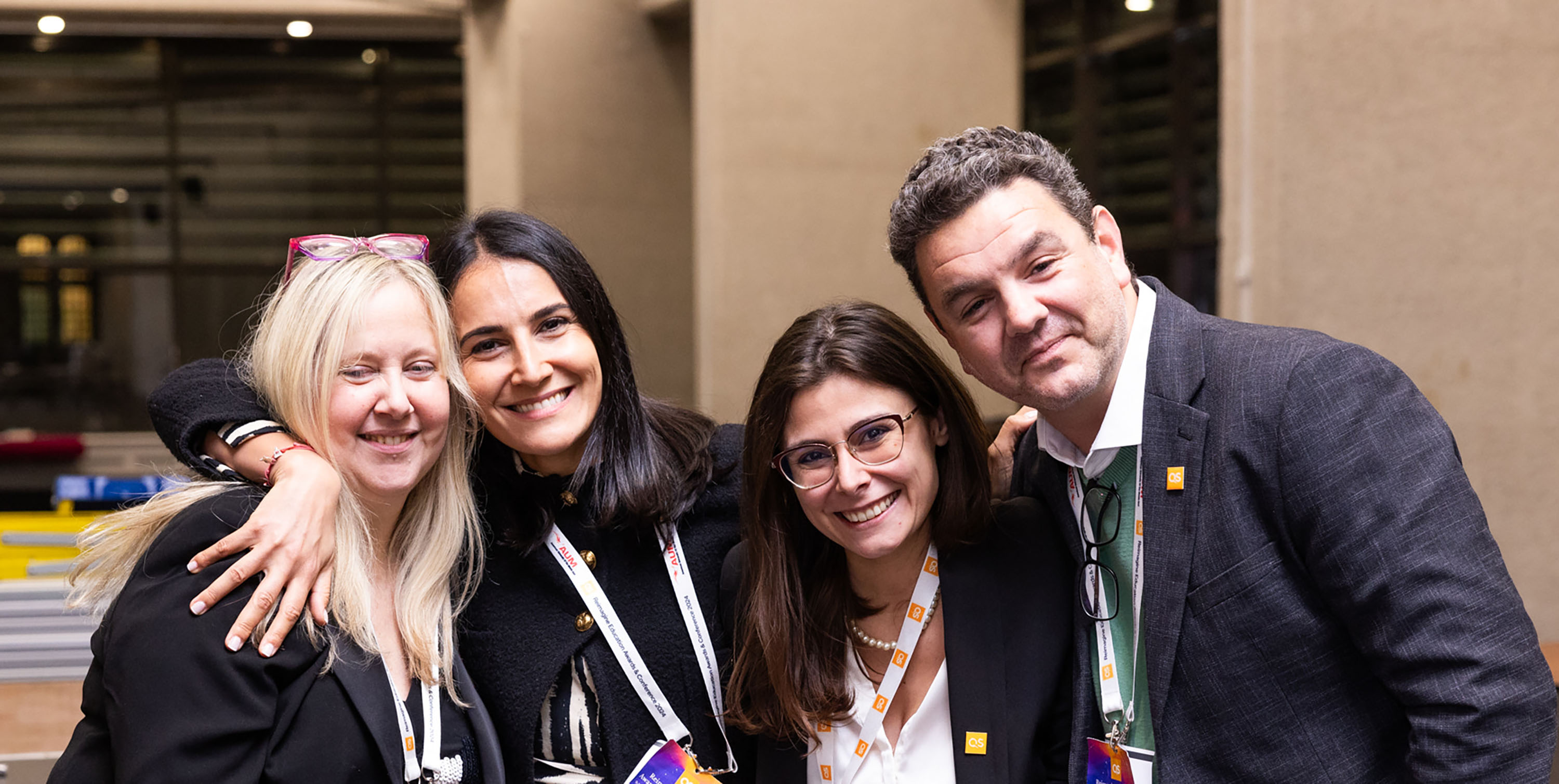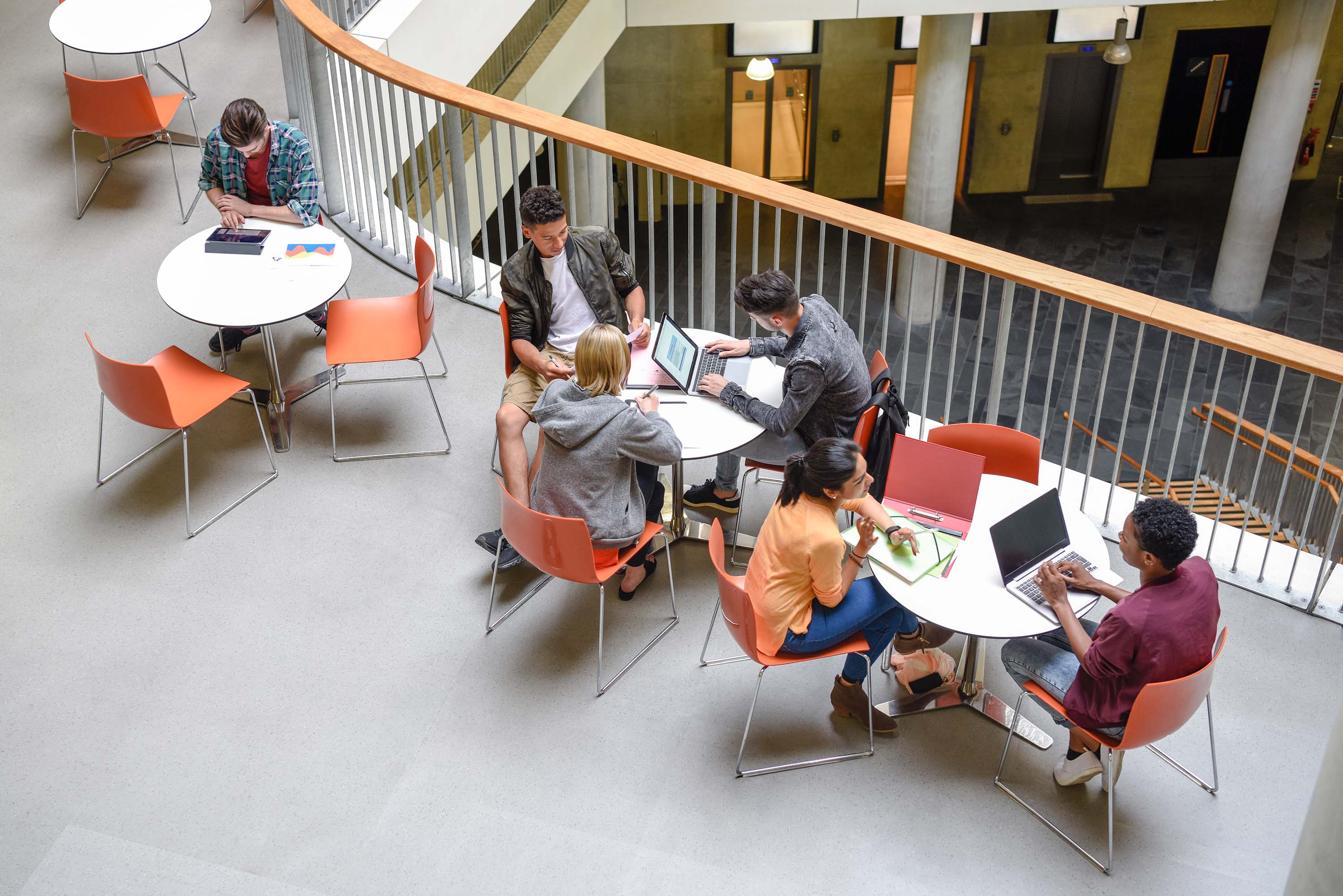A snapshot of the QS India Summit 2025
Over 500 delegates and guests from 30 countries joined us in Goa for the QS India Summit 2025. Across panels, masterclasses, breakfast meetings, roundtables and seminars, we hosted invigorating and purposeful discussions centred around equitable partnerships between Indian higher education and the global sector.
QS CEO Jessica Turner set the scene by outlining some of the key challenges the higher education sector is facing: Countries across the globe are grappling with economic fluctuations, geopolitical shifts and the climate emergency. She added that these are uneasy times for universities too – with financial shortfalls and public perception challenges.
She said: “It can be all too easy to dwell on the challenges but the demand for education and for impactful research is not diminishing. The pace of change in the world and the workplace means there is huge potential for a new era in higher education which prepares graduates with the transferable skills, innovation mindsets and a passion for continuous improvement through life-long learning.”
Explaining the Indian context in his remarks at the Summit’s opening ceremony, QS Executive Director Dr Ashwin Fernandes said: “When we talk about India’s rise in the past few years, we cannot ignore the tremendous momentum we are gaining across every sphere. Be it finance, technology, infrastructure or education, India is not just participating on the global stage, we are shaping the global agenda.”
With the opening up of Indian higher education through the National Education Policy 2020 coupled with India’s thriving economy and reputation as an innovation and technology powerhouse, this is undoubtedly an exciting time with immense potential for growth.
In her keynote speech, British High Commissioner to India, Lindy Cameron CB OBE, echoed this sentiment of a “paradigm shift” in the higher education landscape. She said: "There is a real sense of momentum and excitement that has built and continues to build, which allows the internationalisation of the sector here in India but also the projection of Indian education to the world."
The value to education and beyond of equitable global partnerships
The core theme of the Summit was: Creating Equitable Educational Partnerships Amid Global Uncertainties. Dr Fanta Aw, CEO and President of NAFSA, focused her keynote speech on the value brought by partnerships and working together, saying: “Research outcomes, inbound and outbound student mobility, student mental health, skill development and economic growth are all improved by strong partnerships.”
She explained the role which education can play in addressing social inequality, economic and environmental injustice, divisive politics and youth unemployment.

She concluded by reminding everyone that it is students that must remain at the heart of our education policies and decision-making. She said: “As policymakers, educators, entrepreneurs, industry, and government, let us never forget that our young people are the future, and they deserve the best and most we can offer. The decisions and choices we make today have implications not only for now, but well into the future.”
Speakers and delegates throughout the Summit emphasised the importance of any partnership between an Indian and international institution being mutually beneficial and built on respect and shared ambition.
Dr Majorie Spooner O’Neill MP, Parliamentary Secretary for Transport and Member of the Australian Labor Party and Member for Coogee, emphasised the importance of cross-border collaboration, saying: “Education is, and must always be, a global endeavour. The challenges we face, whether they are skill shortages, climate change or inequality, require solutions that transcend borders.”
She added: “Our challenge is to build a future where learning knows no boundaries, and where every individual has the opportunity to realise their potential.”
International Branch Campuses
In August, the University of Southampton became the first UK university to be awarded a licence to create an international branch campus in Delhi, and the University of Surrey unveiled plans to open a branch campus in Gujarat’s GIFT City complex during the QS India Summit 2025.
Lord Jo Johnson, former British Minister of State for Universities, Science, Research and Innovation, said: “The contribution that the students who start at the University of Southampton and who start at the University of Surrey will make goes well beyond the limitations of their own educational experience. They will make a contribution to India's ability to solve the great global challenges of our time.
“We've seen other forms of collaboration in terms of joint degrees, dual degrees, research partnerships, and other forms of collaboration that all in their own way highlight the diversity of the UK system and the myriad ways in which UK institutions can contribute towards India's development as a knowledge powerhouse.”
Throughout the Summit, the value of bringing international branch campuses to India was a subject of significant debate, amid concerns that they would not bring benefit to Indian higher education or to Indian students.
In the Great Education Face-Off debate on Day 3 of the Summit, speakers argued for and against whether ‘Hosting foreign universities in India will improve Indian higher education’. Dr Geetika Patel, Vice President and Medical Director, Parul University, stated that many of the successes which India is experiencing is by realising India’s unique strengths, with initiatives like Make in India and Start Up India focused on the country’s own people and innovation.
She said: “The only way for any nation - and any organisation - to grow and prosper is to realise their own internal strengths, capacities and potential and to build upon them to grow. I think bringing in someone from outside is against the core of this growth.”
In a very close conference poll on the topic, 51% said they did not believe that hosting foreign universities in India would improve Indian higher education. This is a complex topic and one we’ll be exploring in greater depth over the coming months.
A community for debate and different points of view
In his closing remarks, QS India Summit Chair Professor Raj Kumar, of OP Jindal Global University, said: “This was not a Summit for self-congratulatory messages. We were ready to argue, debate, discuss and defend, and even persuade with different points of view.

“It's absolutely important for universities to be deeply embedded in the realm of ideas, ideas that can be potentially transformative and make a significant impact for the future, and that's why what QS has done is to have a convening power that brings all of us together.”
We are deeply thankful to our honoured guests, speakers and sponsors for their participation and contribution to making this event possible.
Register your interest to join us at the QS India Summit 2026.









.jpeg)









